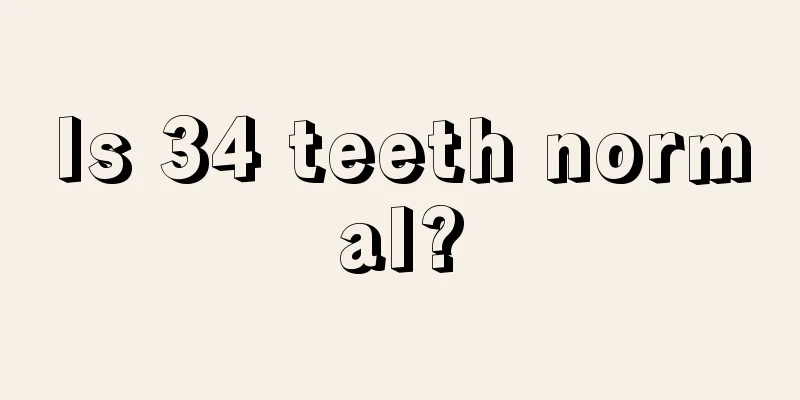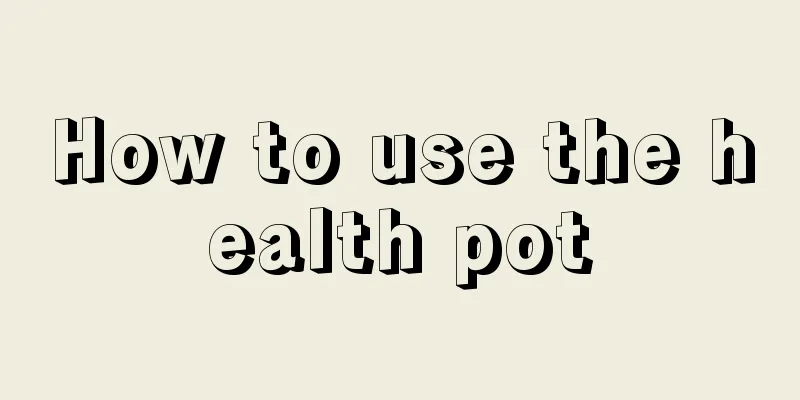Is 34 teeth normal?

|
As we all know, people have two sets of teeth in their lifetime, one set is deciduous teeth and the other is permanent teeth, and the number of teeth in the two sets is different. Normal people usually have 20 deciduous teeth, which will start to grow slowly at about six months old and will be fully grown at about three years old. The number of permanent teeth is generally 32, which will be fully grown at the age of 12. So is 34 teeth normal? First, are 34 teeth normal? Permanent teeth: are a person’s second set of teeth, totaling 32. From around the age of 6, the deciduous teeth begin to fall out gradually, and the permanent teeth begin to erupt and replace the deciduous teeth. Except for the third molars, the remaining 28 teeth usually erupt by around the age of 12. The third molars (wisdom teeth) erupt relatively late, between the ages of 18 and 30. Some never erupt or only partially erupt (a total of 4 teeth). That is, during the permanent tooth period, a normal person has 28-32 teeth. Second, when people grow up to 16 to 18 years old, the number of teeth between people may be different, because some people will continue to grow teeth (wisdom teeth, also known as "third molars"), while some people will no longer grow teeth. The situation for those who continue to grow teeth is also different. Some people may grow 2 wisdom teeth, reaching a total of 30. And people who grow 2 wisdom teeth may have them on the top, and some may grow them on the bottom; others may grow 4 wisdom teeth, reaching the upper limit of 32 human teeth. Are 34 teeth normal? Theoretically, an adult should have 32 teeth, symmetrically distributed on the left and right. The distribution of these 32 teeth is: 2 incisors, 1 canine, 2 bicuspids and 3 molars in each upper and lower row on each half. The four molars at the back are also called wisdom teeth, and some people do not grow wisdom teeth. When one or two teeth fall out due to aging or external force, it will not have much impact on your health. They can be repaired by making porcelain teeth or wearing dentures. However, if the teeth fall out gradually and the number is less than 20, it will gradually affect the health of the body. If a person has less than 20 teeth, the chewing function will inevitably be weakened, which means that the food eaten cannot be fully chewed, which will directly affect the gastrointestinal digestive function; in addition, the lack of teeth will also have a great impact on speech pronunciation. If any teeth fall out, it is best to repair them in time. Having more than 20 functional teeth has many benefits for the human body and helps prolong life. |
<<: Can all teeth be replaced?
>>: What should I do if there is tartar inside my teeth
Recommend
The difference between invisible braces and braces
There is definitely a huge difference between inv...
Seasonal peeling_How to treat seasonal hand peeling
The symptom of seasonal peeling will automaticall...
What should I pay attention to when doing fallopian tube angiography
As the pace of life continues to accelerate, more...
How to Check for Ovarian Cancer
How to check for ovarian cancer? Because the earl...
The benefits of grip strength training How to train grip strength
In life, if people can often exercise their grip ...
The difference between menstrual blood and normal blood
Menstruation is a familiar physiological phenomen...
Can people with kidney yin deficiency eat barley porridge
Can people with kidney yin deficiency eat barley ...
What is the reason for yellow forehead and pale face
A person's complexion directly reflects wheth...
How to prevent lung cancer in children? Two good ways to prevent lung cancer in children
To prevent lung cancer in children, pregnant wome...
How long can one live if nasopharyngeal cancer turns into lymphoma
The survival period of nasopharyngeal carcinoma m...
How to take care of the confinement period after giving birth?
Cesarean section is an increasingly popular metho...
Is there any good way to repel mosquitoes
The weather is hot in summer and there are more m...
What are the postoperative care methods for advanced lung cancer? 5 postoperative care methods for advanced lung cancer
Lung cancer has a high prevalence in my country a...
Preventing recurrence of endometrial cancer
We must actively grasp the methods to prevent the...
How much rice flour to eat for the first complementary food
For the first time adding complementary food to t...









